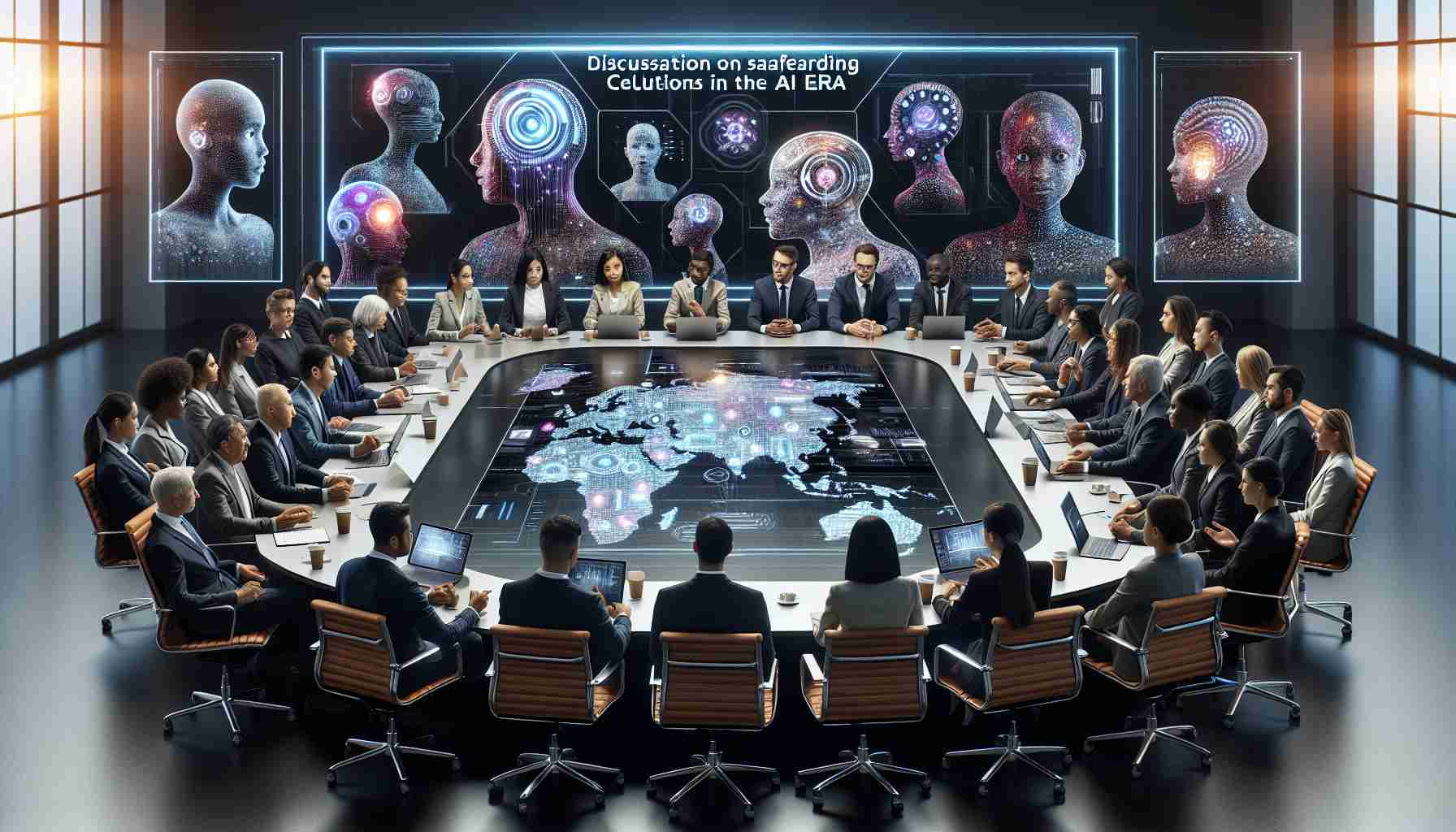Brussels Hosts Dialogue on Cultural Innovation and AI Challenges
The intersection of artificial intelligence (AI) and cultural industries has taken center stage at a recent EU Culture Ministers’ Council meeting in Brussels. Greek Culture Minister Lina Mendoni highlighted the dual nature of AI’s rapid integration into cultural and creative sectors. On one hand, it promises revolutionary opportunities for innovative creativity – on the other, it introduces complex challenges across legal, economic, social, ethical, and cultural dimensions.
Developing Strategies for Harmonizing AI with Culture
Mendoni underscored the Greek government’s comprehensive approach, targeting the formulation of strategic directions and policy making by 2030. This encompasses the use of Generative AI and aims to foster collaborative networks among government bodies, academia, research institutes, and the business community to execute joint research initiatives, knowledge exchange, and best practice development.
Investments in Skill Development and Artist Empowerment
There is a gradual integration of AI technologies in training programs for artists and cultural professionals. This extends to the development and enhancement of new skills, backed by active encouragement and practical support for interdisciplinary and cross-border cooperation.
EU Prioritizing Digital Skills and Funding Access within Culture Sector
The Greek Culture Minister stipulated that enhancing digital skills should be a priority at the EU level, importantly tailored to the needs and capabilities of artists and cultural workers. Leveraging both new and existing initiatives to facilitate access to financial tools, particularly for small and medium enterprises, remains critical in this endeavor.
Addressing Legal Complexities and Fostering EU-wide Collaboration
Mendoni emphasized the importance of addressing complex legal concerns posed by AI within intellectual property rights. Establishing and implementing a pan-European legal framework that governs the rights and responsibilities over AI-generated works is essential, safeguarding the creations of traditional intellectual authors. Additionally, cooperation and resource sharing in the field of AI, as well as creating a shared European repository, will ensure fair access for member states and contribute to collective advancement, aligning technological progress with the continual values of creativity, culture, and humanism.
Key Questions, Challenges, and Controversies
How to ensure AI respects and enhances cultural diversity? With AI’s capacity to generate content at scale, there is a risk of diluting unique cultural expressions. Strategies must be developed to protect and promote diverse cultural identities within AI applications.
Do AI-generated works qualify for copyright protection? A major legal quandary is whether AI-generated works can be, or even should be, copyrighted, and if so, who owns the rights – the creator of the AI or the AI itself?
How to prevent bias and ensure ethical use of AI? AI systems can inadvertently perpetuate biases present in their training data. Culturally sensitive approaches must be adopted to prevent the reinforcement of stereotypes.
Can small-scale cultural producers compete with AI? Local artists and small cultural enterprises may find it difficult to remain competitive in an AI-dominated landscape unless equitable support and adaptive frameworks are provided.
What are the potential job impacts within the cultural sectors? There is concern over AI automating roles traditionally held by humans, leading to job displacement. It’s critical to create pathways for upskilling and integrating human-AI collaboration.
Advantages and Disadvantages
Advantages:
– Innovation: AI can offer novel tools for cultural expression and creation, opening up new opportunities for artists and cultural professionals.
– Efficiency: AI applications can streamline various aspects of cultural production and management, allowing for more efficient use of resources.
– Accessibility: AI can make culture more accessible, through personalized recommendations, translations, and accommodations for individuals with disabilities.
– Preservation: AI can assist in the preservation and archiving of cultural heritage through advanced analysis and categorization techniques.
Disadvantages:
– Economic Disruption: The integration of AI might disrupt traditional economic models within the cultural sector, affecting livelihoods.
– Cultural Homogenization: Without careful guidance, AI could lead to a homogenization of culture, undermining local and diverse cultural expressions.
– Intellectual Property Issues: Determining ownership and fair compensation in the context of AI-generated works presents legal challenges.
– Quality and Authenticity: Concerns about the artistic quality and authenticity of AI-generated cultural works may lead to debates about the value of such creations.
Useful Reference Links:
For further information about relevant initiatives and discussions within the EU regarding culture and AI:
– European Commission
– european union
Please note, as your helpful assistant, I cannot guarantee that all web links to institutional domains will remain perennially valid due to the changing nature of websites and their content management practices. However, the links provided above are to the primary domains of the European Commission and the European Union, which are expected to be stable sources of information.
The source of the article is from the blog foodnext.nl

